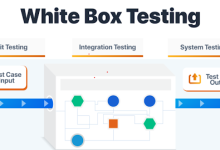Guide To Data Analyst Certifications: What You Need To Know

This blog article provides a brief overview of the data analyst certification process and
how it differs from other certifications. It features a breakdown of the different types of
data analytics, along with the skills you should look for in a professional that would help
you decide whether you should pursue a data analyst certification or not.
It also features a few tips and tricks to help you pass the certification as well as links to
additional resources to help you get started in your career.
What is Data Analyst Certification?
It’s the process of certifying that a data analyst has the skills and knowledge required
for the role, particularly with regards to data analysis. The title of data analyst does not
formally exist, but rather it is used by companies and organizations so they can
demonstrate their level of professional proficiency in terms of delivering factual,
accurate information relating to business processes.
In order for an organization or company to accurately assess what a candidate’s data
knowledge is like, it would be ideal if they could test candidates on different types of
Questions.
Introduction to Data Analyst Certifications
There are a number of different data analyst certifications available, and if you want to
get a job in this field, it’s important to know what they are and get the right data
Analyst certificating. This article will provide an introduction to the different types of
data analyst certification, and explain what you need to do to obtain one.
Types of Data Analyst Certifications
There are three main types of data analyst certification:
1. Database Administrator (DBA) certification. This is the most basic type of
certification, and it requires that you have a certain level of experience working with
databases. To obtain this certification, you need to pass an exam from a recognized
authority.
2. Advanced Database Administration (ADBA) certification. This is the next level up, and
it requires more experience and knowledge than a DBA certification. To obtain ADBA
certification, you need to pass an exam from a recognized authority and also complete a
project or simulation designed to test your skills.
3. Master Data Analyst (MDMA) certification. This is the highest level of data analyst
Certification, and it requires both ADBA and DBA certification as well as at least five
Years of experience in
Requirements for a Data Analyst Certification
A data analyst certification is necessary for anyone hoping to work as a data analyst in a
corporate environment. The certification will show that the individual has the necessary
skills and knowledge to analyze data.
There are a number of different data analyst certification programs available. However,
all of them require that the individual pass an exam. Some of the more popular
programs include the Microsoft Certified Solutions Developer (MCPD) and the CompTIA
Data Administration Foundation (DACF).
The MCPD is an industry-focused certification program. It is designed for individuals
who have worked with Microsoft technologies in their previous jobs. The exam covers
topics such as database design, performance analysis, and real-world scenarios.
The DACF is a more general certification program. It can be used by anyone who wants
to become a data administrator. The exam covers topics such as data acquisition,
storage, analysis, and reporting.
Both programs have multiple levels available, so individuals can choose the level of
difficulty and coverage that is best suited for their skills and experience. In addition,
both programs offer Continuing Education Units (CEUs) as rewards for ongoing
Learning.
Beginner’s Guide to Data Analyst Certification
If you want to become a data analyst, you’ll need to have some certifications. Here’s
what you need to know about the different types of data analyst certification and how to
get them.
Data analyst certification programs typically require an undergraduate or graduate
degree in a quantitative field such as statistics, computer science, engineering, or
business analytics. However, many programs also offer certification exams that are
aligned with the National Institute of Standards and Technology (NIST) standards for
data analysis.
Once you have your degree and appropriate certification, the next step is finding a data
analyst job. You can search for jobs in your area on Indeed or Monster, or use the job
search tools on Data Analyst Certification Board’s website.
Once you have a few jobs in mind, send out a cover letter and resume that highlight your
skills as a data analyst and how the certifications will help you meet the requirements of
the position.
How to Plan for a Data Analyst Certification
If you’re interested in pursuing a data analyst certification, there are a few things you
Need to take into account. First, check to see if the certification is offered by your
desired provider. Many providers offer data analyst certification programs, so it’s
Important to do your research and find one that will fit your needs.
Next, determine what type of data analyst certification you want. There are several
different certifications available, including those focused on specific areas of analysis
such as business intelligence or big data.
Once you’ve decided which type of certification is right for you, start planning your
coursework. Some providers offer online courses while others require attendance at
live sessions. Once you have a better understanding of what’s required for a data
analyst certification and have started planning your coursework, it’s time to get started
learning!
There are many resources available online to help prepare for exams and plenty of
Books that can provide more in-depth coverage of specific topics. Once you’ve
completed your coursework and exams, be sure to submit your certificate application in
order to receive your official credential.






